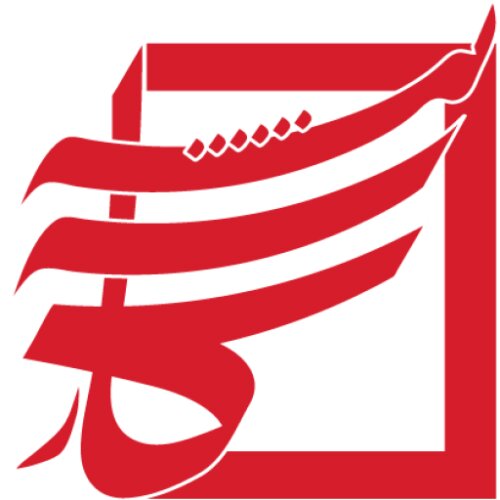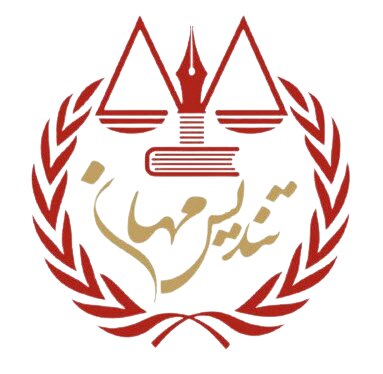Best Corporate & Commercial Lawyers in Tehran
Share your needs with us, get contacted by law firms.
Free. Takes 2 min.
List of the best lawyers in Tehran, Iran
About Corporate & Commercial Law in Tehran, Iran
Corporate and commercial law in Tehran, as in the rest of Iran, forms the backbone of business activities and economic growth. This area of law governs the creation, management, growth, and dissolution of companies and regulates commercial transactions, contracts, and related matters. Tehran, being Iran's capital and its largest commercial hub, has a vibrant business environment where these laws are particularly vital. Whether dealing with small startups or large multinational operations, understanding the legal landscape is essential for smooth operations in Tehran's dynamic market.
Why You May Need a Lawyer
There are many situations where seeking legal advice in the field of corporate and commercial law is crucial. Here are some common scenarios:
- Starting a business - choosing the right legal structure, registering the company, and obtaining required permits
- Drafting, reviewing, or negotiating contracts with suppliers, customers, or partners
- Resolving shareholder disputes or internal governance issues
- Complying with local regulations, including tax, labor, and commercial codes
- Mergers, acquisitions, or joint ventures
- Protecting intellectual property rights
- Facing insolvency, bankruptcy, or company liquidation
- Handling employment issues within the organization
- Foreign investment and navigating restrictions or incentives for non-Iranian shareholders
- Litigation or commercial dispute resolution
Legal processes can be complex, and misunderstandings may lead to costly mistakes, making professional guidance invaluable.
Local Laws Overview
Iran's corporate and commercial laws are primarily codified in three main statutes: the Commercial Code, the Companies Act, and the Civil Code. These laws, along with various government regulations and decrees, provide the framework for business activities in Tehran.
- The Commercial Code covers a broad range of business activities including types of companies, commercial contracts, negotiable instruments (such as checks and promissory notes), maritime commerce, and bankruptcy processes.
- The Companies Registration Office in Tehran oversees all corporate registrations, changes, and dissolutions.
- The law recognizes several corporate forms, such as Limited Liability Companies (LLCs), Joint Stock Companies (both public and private), and branches of foreign companies, each with specific compliance requirements.
- Foreign ownership is permitted in most sectors, but some industries are restricted or require special approvals. The Foreign Investment Promotion and Protection Act (FIPPA) outlines conditions for foreign investors.
- Contracts must meet formal requirements, and some agreements need to be registered and officially notarized to be enforceable.
- Compliance with tax, social security, environmental, and labor laws is mandatory for operating businesses in Tehran.
- Arbitration and mediation are recognized as alternative dispute resolution mechanisms, though litigation remains common.
Staying up to date with changing legislation is important, as reform and regulatory updates occur regularly.
Frequently Asked Questions
What is the most common type of business entity in Tehran?
The Private Joint Stock Company and the Limited Liability Company (LLC) are the most commonly chosen entities for both local and foreign investors due to their flexibility and clearer management structures.
Can a foreign national own a company in Tehran?
Yes, foreign nationals can own companies in Tehran, although certain sectors may require additional licenses or government approval, and there are industry-specific restrictions to be aware of.
What is the process for registering a company?
Company registration involves choosing the appropriate legal structure, preparing articles of association, submitting documents to the Companies Registration Office, obtaining a commercial card, registering for tax, and complying with other sectoral regulations.
Are shareholder agreements enforceable in Iran?
Yes, shareholder agreements are generally enforceable, but to avoid disputes it is recommended to clearly outline rights and obligations and, in some cases, register the agreement with relevant authorities.
How are business disputes usually resolved in Tehran?
Disputes can be resolved through negotiation, mediation, arbitration, or litigation. Arbitration clauses are common in contracts and can be effective for resolving commercial disputes outside of court.
What are the taxes applicable to businesses in Tehran?
Businesses must pay corporate income tax, value-added tax (VAT), and payroll-related taxes. There may also be sector-specific taxes or duties, so a qualified advisor can clarify your obligations.
Is it mandatory to keep financial records and undergo audits?
Yes, all businesses in Tehran are required to maintain proper financial records. Public companies and larger private companies must have annual audits conducted by licensed accountants.
How can a company be dissolved or liquidated?
Voluntary liquidation requires shareholder approval, settlement of debts, submission of documents to the Companies Registration Office, and public notice in official gazettes. Involuntary liquidation follows legal proceedings via the courts.
What are the labor law requirements for businesses?
Businesses must comply with Iran’s Labor Code, including minimum wage, employment contracts, working hours, insurance registration, and severance payments for employees. All employment relationships should be officially registered.
Are there restrictions on repatriation of profits for foreign companies?
Yes, but under the Foreign Investment Promotion and Protection Act (FIPPA), foreign investors can repatriate profits, but must satisfy tax requirements and follow prescribed procedures to transfer profits abroad.
Additional Resources
Several organizations and governmental bodies can provide further assistance and information:
- Companies Registration Office of Iran - for company formation, changes, and dissolutions
- Ministry of Industry, Mine and Trade - for industrial and trade licenses
- Iran Chamber of Commerce, Industries, Mines, and Agriculture - for business networking and advocacy
- Iranian National Tax Administration - for tax guidance and compliance
- Foreign Investment Promotion and Protection Organization (FIPO) - for foreign investor support and FIPPA processes
- Central Bank of Iran - for foreign exchange controls and regulations
- Iranian Bar Association - for connecting with licensed legal professionals
Next Steps
If you need legal assistance in the corporate and commercial field in Tehran, follow these steps:
- Clearly define your legal issue or business goal.
- Gather all relevant documents, such as contracts, company filings, and correspondence.
- Consult with a qualified lawyer or legal advisor who specializes in corporate and commercial law in Tehran.
- Discuss possible solutions, compliance requirements, and expected timelines.
- Ensure that any legal services you engage are performed by individuals or firms registered and licensed to practice in Iran.
- Follow up on all filings, registrations, and regulatory obligations to ensure ongoing compliance.
Legal procedures in Tehran can be nuanced and detailed. Professional guidance helps ensure your business is established, managed, and grown on a solid legal foundation.
Lawzana helps you find the best lawyers and law firms in Tehran through a curated and pre-screened list of qualified legal professionals. Our platform offers rankings and detailed profiles of attorneys and law firms, allowing you to compare based on practice areas, including Corporate & Commercial, experience, and client feedback.
Each profile includes a description of the firm's areas of practice, client reviews, team members and partners, year of establishment, spoken languages, office locations, contact information, social media presence, and any published articles or resources. Most firms on our platform speak English and are experienced in both local and international legal matters.
Get a quote from top-rated law firms in Tehran, Iran — quickly, securely, and without unnecessary hassle.
Disclaimer:
The information provided on this page is for general informational purposes only and does not constitute legal advice. While we strive to ensure the accuracy and relevance of the content, legal information may change over time, and interpretations of the law can vary. You should always consult with a qualified legal professional for advice specific to your situation.
We disclaim all liability for actions taken or not taken based on the content of this page. If you believe any information is incorrect or outdated, please contact us, and we will review and update it where appropriate.
Browse corporate & commercial law firms by service in Tehran, Iran
Tehran, Iran Attorneys in related practice areas.















